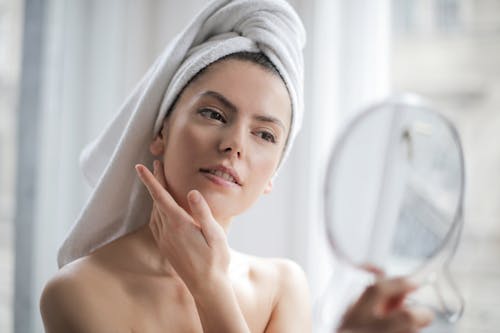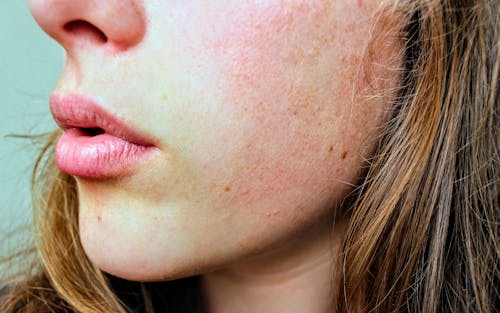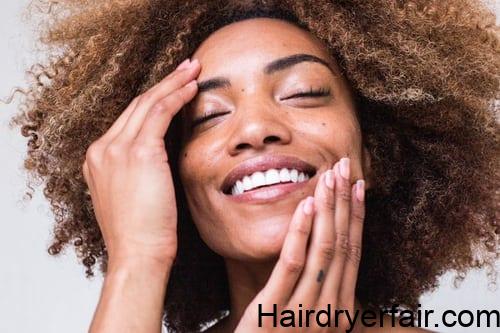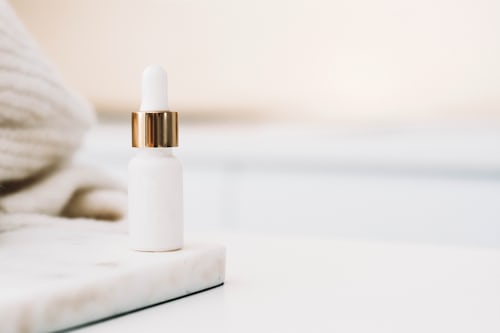Jojoba oil is a fluid of the Simmondsia Chinensis seedlings, a shrub that comes from Southerly Arizona, Southern California, and Northwest Mexico. The oil accounts for about 50% of the jojoba seed by weight. But is jojoba oil good for face?
What Is Jojoba Oil?
The terms “jojoba oil” and “jojoba wax” are often used interchangeably, as the wax is visually moving oil. It consists almost entirely of (97 percent) long-chain fatty acid and alcohol monoesters (wax esters), together with just a small fraction of triglycerides. This composition is responsible for its extreme shelf-life and exceptional resistance to high temperatures compared to true vegetable oils.
The jojoba is a heart-rending, perennial plant in North America. It not only thrives in harsh, desert environments, which could kill most living things; it also produces a nozzle with many healing properties.
The jojoba plant’s nut can be produced in an oil. Jojoba oil is soft enough to mix with other essential oils as a carrier oil. You can use it on your own, too.
As part of their skin treatment routine, many people use jojoba oil. And for that, there are good reasons. A wealth of evidence supports the use of pure jojoba oil as a remedy for acne, dry skin, and countless other skin conditions.
Is Jojoba Oil Good For Face?

Is jojoba oil good for face? Here are some of the reasons why you should try jojoba oil for your skincare routine!
It relieves dryness.
Jojoba oil closely imitates the skin’s own sebum and makes it an effective natural conditioner—good news for anyone with dry or irritated skin. You should always use it in the final skincare phase as jojoba oil seals in moisture.
It removes makeup.
What if this all-natural ingredient can dissolve and whisk away everything from sunscreen to waterproof mascara on a separate maker remover or oil cleanser?
Active overloads.
Since jojoba oil can penetrate the skin matrix throughout, it can contribute to the ferry active ingredients such as salicylic acid and retinol, enabling them to do their best work.
It protects from damage to the sun.
Jojoba is the only plant in the world known for producing pure liquid wax esters. It places these long molecules into the outer layer of its leaves to prevent UVB rays from penetrating its leaves.
It balances oily skin.
If the skin is stripped of its natural sebum, the sebaceous glands may be overdriven by such things as using a non-pH balanced cleanser. This creates a fatal cycle of oil overproduction — and overcleaning — that leads to outages—jojoba, who can reset your skin by restoring balance.
It calms Eczema.
People with asteatotic Eczema are more likely to dry because their skin produces less sebum and less moisture. Jojoba can help cure asteatotic Eczema through its analgesic and anti-inflammatory effects and restore a compromised skin barrier.
It soothes sore lips.
A massage in a few drops of nourishing jojoba and then a protective backing layer will see a major difference in only a few days.
It’s hydrating.
Jojoba oil is a trusted source of humectant ingredients. It works to seal your skin with a protective barrier to prevent moisture loss. This can help prevent the formation of bacterial infections, acne, and pelvis.
It is antibacterial.
Jojoba oil has antimicrobial and antifungal characteristics. While the lab tests Trusted Source found that jojoba oil does not kill any bacterial species or fungal species, it kills some salmonella bacteria and fungi, and E. Infection with coli and candida.
It is an antioxidant.
Jojoba oil contains vitamin E in its natural form. This vitamin works as an antioxidant with your skinTrusted Source. This means jojoba oil can help your skin combat oxidative stress due to exposure to pollutants and other toxins on a daily basis.
It is non-comedogenic.
Although jojoba oil is botanical, the makeup is so much like oil (sebum) that your skin cannot tell the difference. This makes it less likely to build and block pores on your skin, which results in fewer outbreaks and less severe acne.
It’s hypoallergenic.
Jojoba oil is a wax at a molecular level. Although it can be absorbed in your skin, it can produce a soothing seal on the surface by its waxy nature. In contrast to other essential botanical oils, jojoba oil is typically non-irritating. Rare is the allergic reaction.
It helps to control the production of sebum.
Jojoba oil controls sebum production as sebum is so similar that your body naturally produces. Your skin is soothed and moisturized when you put jojoba oil on your skin. This sends a signal that your skin needs no additional sebum to hydrate your hair and sweat follicles. This keeps the skin oily and helps prevent acne caused by obstructed pores.
It can help promote the synthesis of collagen.
Jojoba oil antioxidants can help your body to produce collagen. Collagen is a protein made of cartilage in your skin, joints, and parts of your body. The levels of collagen decrease as you grow older. This is part of why you change your face structure as you age. At least one study links skin-applied antioxidants to the improved synthesis of collagen.
It can help accelerate the healing of wounds.
Jojoba oil is a promising ingredient in wound healing stimulation. Preliminary studies show that jojoba oil encourages your skin cells to bind after they have been scratched or cut off.
This can also be why acne and acne scarring can be treated. These wound healing properties may be associated with the concentration of natural vitamin E in jojoba oil.
It can help to alleviate sunburns.
In some natural sunscreen products, Jojoba oils are a popular ingredient. One study suggests vitamin E can help protect your skin from sun damage in combination with other antioxidants. Both are contained in Jojoba oil. Sun damage can dehydrate and flake your skin. Jojoba oil restores vitamin E, adds moisture, and promotes healing to alleviate sunburn symptoms.
It can aid in the treatment of acne.
At least one clinical trial shows that jojoba oil may contribute to the absence of acne. Jojoba oil has anti-inflammatory, soothing, healing properties, hydrates and is a natural antimicrobial.
Is Jojoba Oil Good For Face? Skin Type Matters

Cold jojoba pressed oil is produced by pressing jojoba nuts between two plates and swapping heat to remove oil pressure. The end result is a crystalline, room-temperature liquid wax. Based on a heart-rending, perennial jojoba plant grown in North America, this oil is non-comedogenic and also dries, so there is no residue left on the skin. Is Jojoba Oil good for face?
Acne and Oily Prone
If you’re told oily skin to stay as far from oil-based formulas as possible, this could be the exception to the rule – you can actually fight oil with oil. The advantage of this type of oil, and its edge over others, is that its structure closely reflects the structure of the skin’s building blocks, namely human sebum (the oily, waxy substance that lubricates and coats the skin) so that the skin recognizes it.
Since it so closely resembles the natural oil of the skin, its application indicates that a healthy oil balance has been achieved and that the skin can now stop producing more oil.
Jojoba Oil also has super-small molecules (much smaller than argan or cocoa oil) that make your skin less susceptible to building and clogging pores. This results in fewer breakouts and lower acne. Jojoba oil fights acne and prevents makeup from obstructing pores when included as an ingredient in makeup products.
Dry

This ingredient can regulate oil production for dry skin types and act as an emollient and a hydration barrier. By softening and reducing the smoking of skin and by dissolving it in humectant hydration (occlusive properties), jojoba oil takes a two-pronged approach to prevent moisture from leaving the building.
This makes it an excellent remedy also for dry or irritated cuticles. Jojoba oil contains compounds called tocopherols that are forms of vitamin E that work to remove free radicals and thereby slow down the epidermal aging process.
This helps strengthen and strengthen the skin matrix and can help prevent fine lines and wrinkles from forming too. Jojoba oil is also an effective treatment for chapped lips, as the waxy texture provides a barrier to prevent loss of moisture. Use it as the last step after applying a skin hydrator such as hyaluronic acid for the best results.
Final Words
Rich in beauty-enhancing vitamins A, E, and D, plus antioxidants and fatty acids, “oil” jojoba is a wax ester with remarkably similar properties to the sebum of our skin. This means that the “oil” can penetrate deeply and reach the top layer of skin for maximum nutrition. Jojoba is also naturally antibacterial, antiviral, analgesic, hypoallergenic, and antimicrobial. Perhaps best of all, it can be used on any type of skin, from dry to acne-prone. Because Jojoba Oil is very much like our own skin oils, it penetrates the skin and smoothes immediately, helping to promote healthy, glowing skin without blocking pores or leaving a gray waste.



